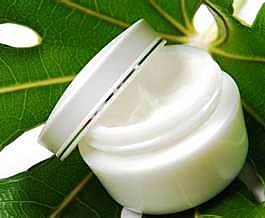Adulterated Ingredients In Organic Cosmetics Discussed At Asia-Europe Industry Conferences
 November 10, 2012
November 10, 2012  Kyriaki (Sandy) Venetis
Kyriaki (Sandy) Venetis With the rise in worldwide appeal of natural and organic cosmetics over the last several years, issues have also risen about misleading marketing, adulterations of products , and issues unrelated to safety - like exploring new natural ingredients, such as those from marine origins, and issues related to pricing and distribution.
 Image courtesy of blogbeyondbeauty.com.
Image courtesy of blogbeyondbeauty.com.
These issues and more like them are going to be discussed in two Organic Monitor Sustainable Cosmetics Summits scheduled this month – the Asia-Pacific edition in Hong Kong on Nov. 12-13, 2012 and the European edition in Paris on Nov. 21-23.
Organic Monitor is a London-based specialist research, consulting, and training company, which focuses on the global organic and related product industries.
Since 2001, Organic Monitor has been tracking ethical and ustainable industries that include organic products, fair trade products, natural cosmetics, ethical textiles, and sustainable packaging.
The Asia-Pacific summit this month will cover areas including green ingredients, alternatives to animal testing, the potential of halal cosmetics, eco-design and sustainable packaging, measuring environmental impacts, and marketing organic skincare products.
The Asia-Pacific summit will have two interactive workshops – the first will focus on green ingredients and the second will focus on cosmetic packaging for sustainability.
The first workshop will cover major technical issues associated with reformulating products to meet natural and organic certifications standards, involving replacing synthetic emulsifiers, surfactants, and preservatives with green alternatives.
This workshop will also discuss issues of the relative performance, stability, safety, and costs associated with natural and organic ingredients compared to conventional ingredients.
Organic Monitor also discussed many of these issues in a paper in June 2012, titled Asia: Hidden Challenges of Green Cosmetic Formulations, where consumer demand, preservation, challenges of hot climates, performance, and costs were the main focus.
Judi Beerling, technical research manager at Organic Monitor found that “green formulation is becoming increasingly popular in Asia” because of growing consumer concerns largely associated with potentially harmful preservatives such as parabens.
Though, in hot climates, natural preservatives have their own safety issues, as Beering points out. “Since many Asian countries have high temperatures, cosmetic products many not always be stored under ideal conditions, and thus milder, green preservatives sometimes face greater performance and stability challenges,” she explained.
Besides climate conditions, Beerling also pointed out that because many Asian countries follow European cosmetic regulations, “there is a gray area particular to natural preservatives because such ingredients are not registered in the EU Annex.”
Ingredient costs are also an issue, with the paper pointing out that the quantities shipped into Asia have “become very expensive” and that “this also makes it more difficult for Asian brands that target the lower price category to make the switch to greener formulations or more sustainable raw materials.”
Safety is a significant reason there is such a high demand for natural and organic products in Asia, because as Beerling explains, there has been a high number of incidents of adulterated foods and consumer products in Asia “such as the melamine scandal, which has led consumers to scrutinize product composition.”
In an updated report on the melamine scandal last year, The New York Times explained that:
Melamine is an industrial chemical used to make concrete, fertilizer and plastics. But it also can mimic protein in certain food-quality tests, and its illegal use by food manufacturers led to a series of scandals in China whose repercussions are still being felt.
Eaten in large enough quantities, melamine can cause kidney damage. In 2008, about 300,000 children in China were sickened and at least six babies died when some manufacturers added it to infant formula to make it appear more nutritious. The chemical helped cover up the fact that the milk had been diluted with water to increase the amount the milk producers were able to sell.
Still wary of domestic products in Asia, Organic Monitor says, “Western brands are favored (in Asia) because there is higher confidence in such products, which gives a low likelihood of possible adulteration.”
Reader comments and input are always welcomed!

Reader Comments